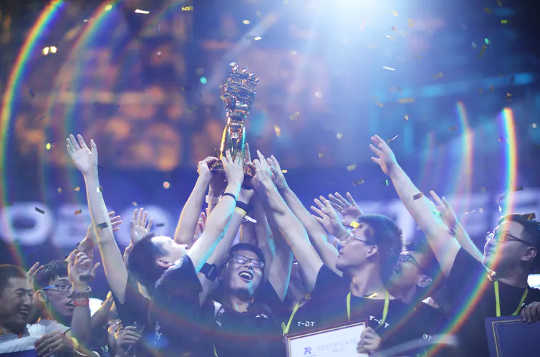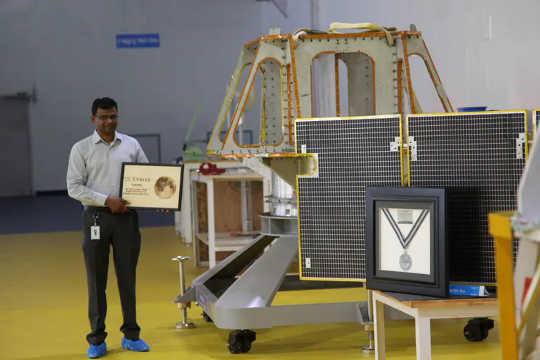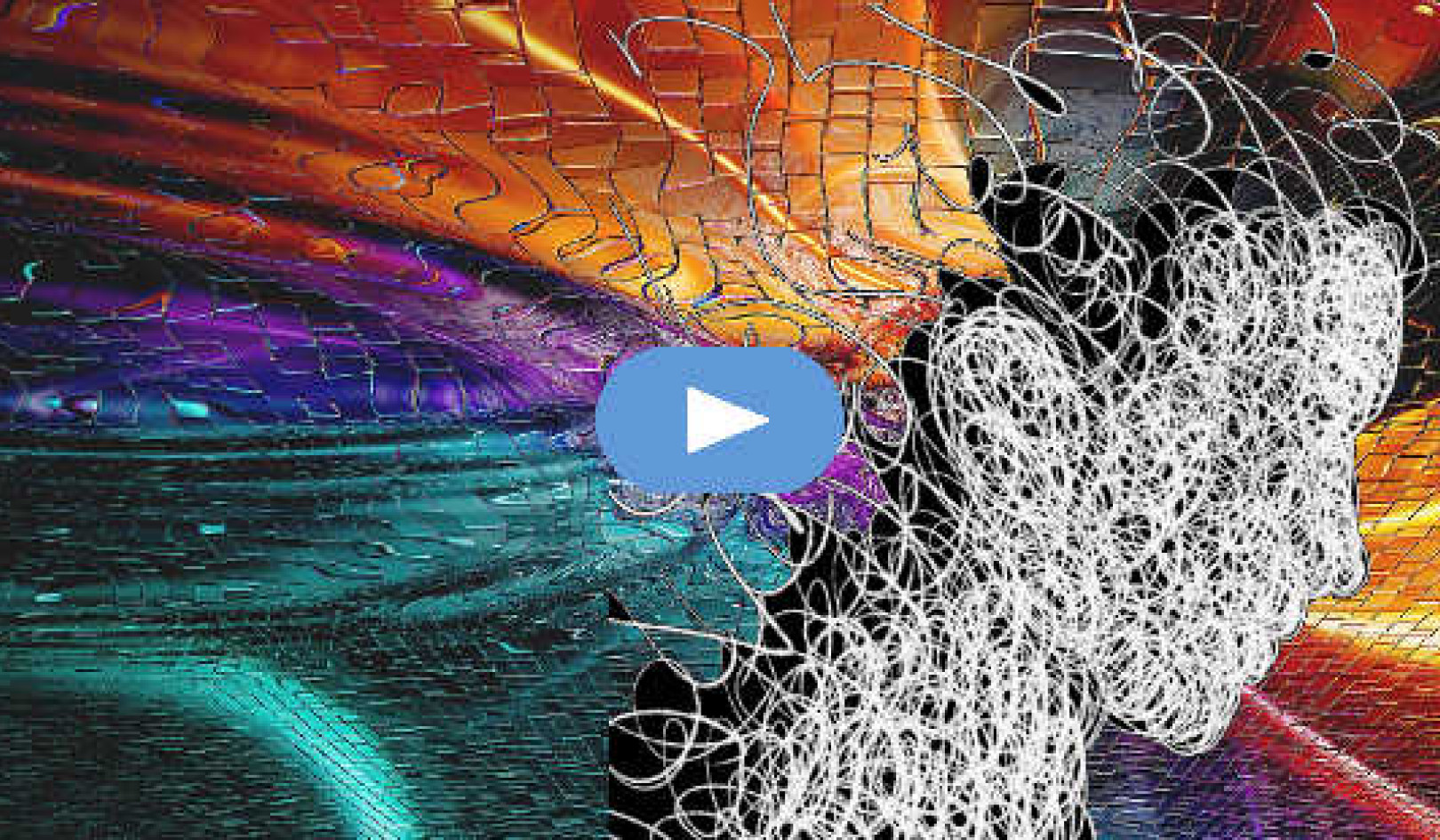
Many prizes that aim to spur innovation are winner-take-all. VCG for 2019 RoboMaster Robotics Competition Final Tournament via Getty Images
Innovation is a critical part of tackling problems in areas as diverse as transportation, housing, public health and energy. But the scientists, inventors and entrepreneurs who might generate creative solutions often investigate issues or pursue economic opportunities in other less urgent fields. Incentives for science and innovation try to steer efforts toward the most pressing societal problems.
Prizes – cash rewards for scientific, engineering and other achievements – are one form of incentive that has been around for a very long time. In the 18th century, for example, organizations such as the Royal Society in the U.K. awarded medals to scientists for their breakthrough research.
Today, in addition to this type of scientific award, there are also prizes for solutions to diverse problems including the invention of new transportation means for disabled people, the engineering of new battery recycling methods, and even the development of technologies to treat COVID-19 patients. There are also “open innovation” websites, such as InnoCentive, that companies use to source ideas and inventions from thousands of problem solvers in exchange for prizes.
All these prizes seek to focus creativity and investment by attracting the smartest and most creative people who, with the right incentive, might focus on the highlighted problem and in turn come up with amazing breakthroughs. Researchers like me work to determine how effective these prizes really are as drivers of innovation.
Reward past achievements, motivate future breakthroughs
There are two main types of prizes. Scientific awards, which include both historic medal awards and the more recent Nobel Prizes, for example, are a retrospective recognition for outstanding contributions to science rather than an incentive to embark on one specific line of inquiry. To award them, every year, a number of judges examine the achievements of the nominees and pick winners.
Grand prizes, in contrast, offer rewards to the first participant who achieves a particular feat that is of interest to the prize organizer. For example, in the 1990s, the Ansari X Prize offered US$10 million for the first private manned spacecraft that went to space twice within two weeks. Participants had to meet these specific criteria to be able to claim the prize, which ultimately sought to promote space tourism. Generally, this type of prize names a single winner who takes home all the prize money. But sometimes there are smaller second and third prizes too.
Thanks to the Ansari X Prize and other popular competitions like the $30 million Google Lunar X Prize for Moon exploration and the $5 million DARPA Grand Challenges for the development of autonomous vehicles (all case studies that I investigated), companies, governments and nonprofit organizations began using prizes more actively and, with help from the internet, made them more popular and exciting.
 SpaceShipOne took home the $10 million Ansari X Prize in 2004. AP Photo/Laura Rauch
SpaceShipOne took home the $10 million Ansari X Prize in 2004. AP Photo/Laura Rauch
Analyzing prizes’ effects on innovation
When I started researching how competitions work as incentives back in the mid-2000s, there was little empirical evidence, even though prizes have been around for a very long time. Since then, research has helped untangle the way prizes work and their potential to encourage science and innovation.
Studies have found, for example, that the motivations to compete for prizes are as diverse as the people and teams that participate. Bigger cash prizes help attract media attention and more participants, but also draw innovators with the possibility of finding a new job, the chance to learn about science and technology, or simply the opportunity to participate in a project that could help change the world.
Prizes compete with other more prevalent incentives for the innovators’ attention and efforts in today’s globally connected and fast-paced world. Prestige, for example, is a very important motivation in science, and lucrative markets drive innovation within companies.
The evidence also shows that new grand prizes attract new investments and may also raise awareness of important problems and influence the direction of ongoing research. Participants who have no scientific or engineering experience might still contribute novel ideas and solutions in prizes that have fewer eligibility requirements and attract more diverse contributors.
Note that since prizes pay only for results – the winning solution – participants need to be resourceful and actively seek support from friends, family and investors.
So, well-designed prizes can stimulate more creativity and innovation, but whether they achieve certain goals ultimately depends on who participates and the broader economic conditions when prize competitions are held. The Google Lunar X Prize, for example, was a fairly open competition and attracted diverse participants, including some who probably didn’t have the skills and experience to complete a lunar mission. The financial crisis of 2008 and its aftermath made fundraising even more difficult for them.
 Rahul Narayan led Team Indus in pursuit of the Google Lunar X Prize. Pallava Bagla/Corbis via Getty Images
Rahul Narayan led Team Indus in pursuit of the Google Lunar X Prize. Pallava Bagla/Corbis via Getty Images
Making prizes more effective
There are at least two important questions that researchers could investigate next so that companies, governments and other prize organizations have more insights into the potential of prizes to accomplish their goals and foster creativity and innovation.
First, how can one systematically measure the impact of prizes? The very nature of prizes makes them difficult to evaluate. For example, volunteers, part-time participants and indirect investments are sometimes not accounted for, which gives an incomplete picture of their true impact.
Second, what are the best cases in which to use prizes? Conflicting views in favor of and against grand prizes for COVID-19 solutions provide just one example of how little is known about when it is the right opportunity to use this type of incentive. Grand prizes have helped develop space technologies, for instance, but other areas such as COVID-19 solutions, cancer research or climate change mitigation might require other types of prizes or entirely different incentives.
Today, prizes are just a small part of the diverse motivations of scientists, inventors and entrepreneurs to come up with new ideas and technologies. Figuring out more about how prizes fit within this ecosystem will unlock their full potential and make them more effective incentives for science and innovation.
About the Author
Luciano Kay, Research Associate at the Institute for Social, Behavioral and Economic Research, University of California, Santa Barbara
This article is republished from The Conversation under a Creative Commons license. Read the original article.
Books on Improving Performance from Amazon's Best Sellers list
"Peak: Secrets from the New Science of Expertise"
by Anders Ericsson and Robert Pool
In this book, the authors draw on their research in the field of expertise to provide insights into how anyone can improve their performance in any area of life. The book offers practical strategies for developing skills and achieving mastery, with a focus on deliberate practice and feedback.
Click for more info or to order
"Atomic Habits: An Easy & Proven Way to Build Good Habits & Break Bad Ones"
by James Clear
This book offers practical strategies for building good habits and breaking bad ones, with a focus on small changes that can lead to big results. The book draws on scientific research and real-world examples to provide actionable advice for anyone looking to improve their habits and achieve success.
Click for more info or to order
"Mindset: The New Psychology of Success"
by Carol S. Dweck
In this book, Carol Dweck explores the concept of mindset and how it can impact our performance and success in life. The book offers insights into the difference between a fixed mindset and a growth mindset, and provides practical strategies for developing a growth mindset and achieving greater success.
Click for more info or to order
"The Power of Habit: Why We Do What We Do in Life and Business"
by Charles Duhigg
In this book, Charles Duhigg explores the science behind habit formation and how it can be used to improve our performance in all areas of life. The book offers practical strategies for developing good habits, breaking bad ones, and creating lasting change.
Click for more info or to order
"Smarter Faster Better: The Secrets of Being Productive in Life and Business"
by Charles Duhigg
In this book, Charles Duhigg explores the science of productivity and how it can be used to improve our performance in all areas of life. The book draws on real-world examples and research to provide practical advice for achieving greater productivity and success.






















